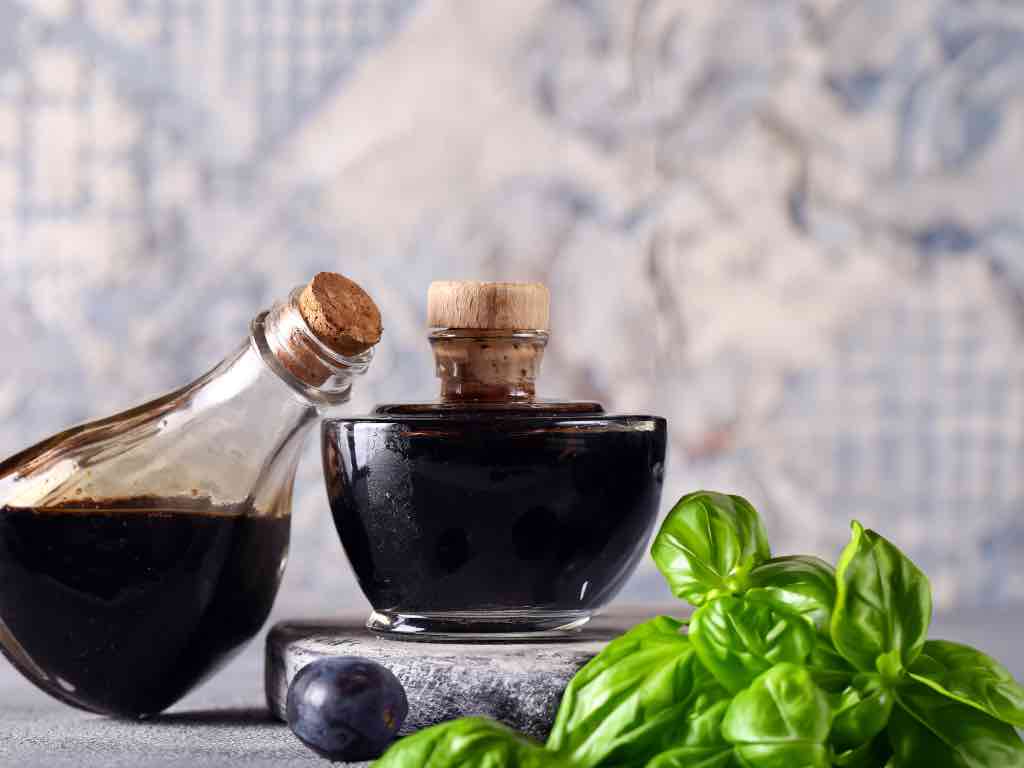
Is Red Wine Vinegar Halal? Navigating Islamic Dietary
|
|
Time to read 4 min
Welcome to One Stop Halal!
Written by: Najma A.
|
|
Time to read 4 min
Vinegar plays an essential role in the world of culinary delights. Its acidic tang enhances flavors, preserves foods, and even brings out the best in salads and sauces. Among the various types of vinegar, red wine vinegar stands out for its rich, robust flavor profile, often utilized in Mediterranean and European cuisines. However, a question arises for Muslim consumers adhering to Islamic dietary laws: Is red wine vinegar halal?
Vinegar is produced through a fermentation process where ethanol (alcohol) is converted into acetic acid by bacteria. This transformation involves two key stages:
Red wine vinegar starts as red wine, produced by fermenting grapes. This red wine then undergoes a secondary fermentation where acetic acid bacteria transform the ethanol into acetic acid, resulting in vinegar.
Islamic scholars have differing opinions on whether red wine vinegar is halal. Here are some perspectives:
Many scholars argue that red wine vinegar is halal because it completely transforms alcohol into acetic acid, aligning with the principle of Istihalah. They emphasize that the final product no longer contains intoxicating alcohol, making it permissible.
Some scholars caution against consuming red wine vinegar, arguing that it originates from wine, which is explicitly haram. They maintain that even though the alcohol is transformed, the origin of the substance matters.
This conservative stance is more prevalent among scholars who take a stringent approach to anything associated with alcohol, emphasizing caution to avoid any potential consumption of prohibited substances.
Several Islamic organizations and halal certification bodies have recently weighed in on the matter.
For Muslims aiming to adhere strictly to halal dietary laws, making informed choices about red wine vinegar involves several practical steps:
The easiest way to ensure that red wine vinegar is halal is to look for halal certification on the product packaging. Reputable halal certification bodies thoroughly investigate the production process to ensure compliance with Islamic laws. A certified halal label provides peace of mind that the vinegar is permissible for consumption.
If there is any doubt or confusion about the halal status of red wine vinegar, seeking guidance from local imams or Islamic scholars can be beneficial. Religious leaders can offer personalized advice based on specific interpretations of Islamic teachings and the individual’s circumstances.
Familiarizing oneself with how red wine vinegar is made can also be helpful. Understanding that the ethanol in red wine is fully converted to acetic acid during fermentation and thus no longer intoxicating can reassure those who might be wary of its origins.
For Muslims who prefer to avoid red wine vinegar entirely, many other types of vinegar are available. Apple cider vinegar, white vinegar, and balsamic vinegar are excellent alternatives. Many of these alternatives are also widely certified as halal and can be used in various culinary applications without concern.
Keeping abreast of new fatwas and guidance from Islamic councils regarding food products can help make informed decisions. As new information and rulings emerge, they can influence halal or haram.
By taking these practical steps, Muslims can ensure their dietary choices align with their religious beliefs while still enjoying a variety of flavors and culinary experiences.
Welcome to the Home of the Wild Caught Seafood. We carry various wild-caught fish and shrimp collections that are hard to find elsewhere. We deliver to your doorstep anywhere in the United States within 1-2 business days.
Whether red wine vinegar is halal highlights the complexities of Islamic dietary laws and the diverse interpretations among scholars. While many support its permissibility based on the principle of Istihalah and the complete transformation of alcohol to acetic acid, others adopt a more cautious approach due to its origins in wine.
Ultimately, the decision rests with individual Muslims, guided by their understanding of Islamic teachings and the advice of religious authorities. Whether choosing to include red wine vinegar in their diet or other types of vinegar, Muslims can find ways to maintain both their culinary preferences and religious principles.
In a world where food products are increasingly diverse and globalized, such discussions underscore the importance of continued dialogue and scholarship to navigate the intersection of faith and daily life.

© 2026 One Stop Halal, Inc.